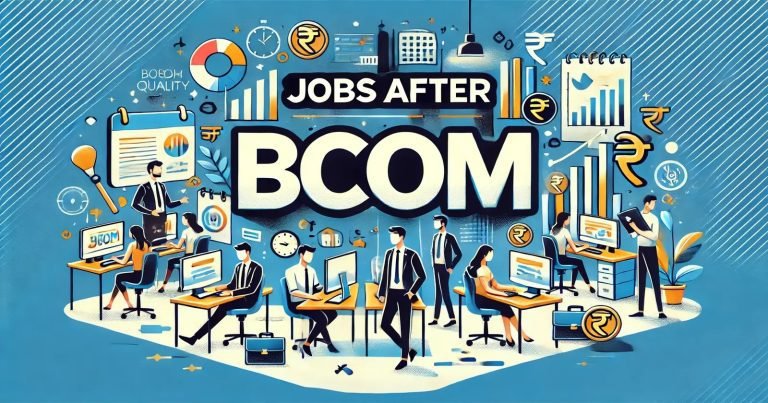Bachelor of Commerce (B.Com)
Need Help
Need guidance on selecting the right course? Contact our support team for expert assistance today!
+91 8818036793
QUICK ENQUERY
Bachelor of Commerce (B.Com)
PROGRAM OVERVIEW
BCom means Bachelor of Commerce, an undergraduate course concentrating on commerce, accounting, and business administration. The eligibility criteria normally include completion of higher secondary education with a recognised board, which also may require the background in commerce or any other related subjects.

The BCom is usually a three-year course, depending on the university and the country. This particular degree would give a fairly sound knowledge base in disciplines such as financial accounting, business law, economics, and management, preparing students for multiple career options in the business and finance streams.
What is a BCom Course?
The Bachelor of Commerce, known as BCom, is an undergraduate course program that aims to equip students with a sound knowledge of various aspects of commerce and business. It is among the most sought-after courses in India, supplying a plethora of opportunities in career line options like finance, accounting, management, etc.
BCom Course Duration:
Generally, the period adheres strictly to the overall norm followed by most universities and colleges in India. The academic year is generally divided into six semesters of about six months each. In India, it generally takes a minimum of three years to earn a Bachelor of Commerce (B.Com.) degree.
BCom Eligibility Criteria:
The qualifications required for a Bachelor of Commerce (BCom) degree have different specifications depending on the university and the country. However, here are some of the common general eligibility criteria:
Academic Qualification: Candidates must have completed their 10+2 from a reputed board with at least 45-50 percent marks (this may vary according to the university). Some institutions may specify Commerce, Mathematics, or Economics as subjects.
- Age Limit: No specific upper age limit in most universities.
- Admission Process: Based on merit (Class 12 marks) or entrance exams (e.g., CUET, NPAT, SET).
- Relaxation: Reserved categories may get lower cutoff requirements as per government norms.
BCom Subjects:
The subjects listed for a B Com and their syllabus are designed to give a comprehensive understanding of facets of commerce.
- Financial Accounting
- Cost Accounting
- Management Accounting
- Business Law
- Economics
- Business Mathematics and Statistics
- Income Tax
- Auditing
- Corporate Law
- Marketing Management
- Financial Management
- Organisational Behaviour
- Human Resource Management
- International Business
- E-Commerce
- Business Communication
BCom Specialisation:
- Specialisation:- Focus Areas
- Accounting and Finance:- Financial accounting, auditing, financial management
- Marketing:- Marketing strategies, consumer behaviour, market research
- Human Resource Management:- Recruitment, employee relations, organisational behaviour
- International Business:- Global trade, international marketing, cross-border transactions
- Banking and Insurance:- Banking operations, insurance policies, financial services
- Economics:- Economic theory, policy, economic analysis
- Taxation:- Tax laws, tax planning, compliance
- E-Commerce:- Online business operations, digital marketing, e-commerce strategies
- Business Analytics:- Statistical and data analysis tools for business decision-making
- Corporate Law:- Corporate regulations, company law, legal aspects of business
- Entrepreneurship:- New venture creation, innovation, business planning
BCom Course Scope: Higher Education Options
- MCom (Master of Commerce)– Specialisation in finance, accounting, or economics.
- MBA (Master of Business Administration)– Ideal for management and leadership roles.
- CA, CS, CMA– Professional courses for careers in finance, taxation, and auditing.
- LLB– Corporate law specialisation for commerce graduates.
Career Opportunities:
- Banking & Finance– Investment banking, credit analysis, financial planning.
- Accounting & Auditing– Chartered Accountant, Cost Accountant, Tax Consultant.
- Corporate Sector– Business Analyst, HR Executive, Marketing Manager.
- Government Jobs– SSC, UPSC, Bank PO, Railways, and other public sector roles.
- Entrepreneurship– Startups, business consultancy, and self-employment.
Global Opportunities:
- International certifications like CPA, CFA, ACCA open doors to global careers.

